- A.N. Shchukarev
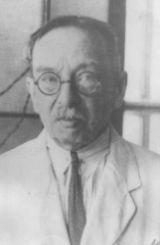 The Department was founded in 1926 by Professor Oleksandr Mykolaiovych Shchukarev. However, already in 1886, academician M.M. Beketov, one of the founders of physical chemistry, delivered the world’s first course on physical chemistry for engineers at the Kharkiv Technological Institute. A year earlier (in 1885), he had given an academic course on physical chemistry at Kharkiv Imperial University (now V.N. Karazin Kharkiv National University). It would be a decade and a half before a similar course was taught by W. Ostwald in Germany. Today, physical chemistry is an essential discipline at all natural science and technological universities worldwide. Its roots trace back to Kharkiv.
The Department was founded in 1926 by Professor Oleksandr Mykolaiovych Shchukarev. However, already in 1886, academician M.M. Beketov, one of the founders of physical chemistry, delivered the world’s first course on physical chemistry for engineers at the Kharkiv Technological Institute. A year earlier (in 1885), he had given an academic course on physical chemistry at Kharkiv Imperial University (now V.N. Karazin Kharkiv National University). It would be a decade and a half before a similar course was taught by W. Ostwald in Germany. Today, physical chemistry is an essential discipline at all natural science and technological universities worldwide. Its roots trace back to Kharkiv.
Professor O.M. Shchukarev headed the department from 1926 to 1936. A distinguished scientist, a graduate of Moscow Imperial University, where he had worked for many years, Shchukarev founded several scientific directions. He developed modern thermochemistry techniques, which were used for over fifty years in all scientific institutions of Russia and later the USSR. Shchukarev’s corrections in calculating thermal effects are still used in thermochemistry today. He was the first to study thermal phenomena during crystallization and other phase transitions in metal alloys, oxides, and organic compounds. He authored pioneering research on the kinetics of crystal dissolution (Shchukarev’s equation), with his studies significantly ahead of their time.
He explored the influence of magnetic fields on the kinetics of chemical reactions, foreseeing this future field in chemistry, and was the first to study thermal phenomena in living organisms. Among the world’s first, he also built an “electrical logical machine” — a prototype of modern computers — and was the first to output the results of logical transformations in a visual form, laying the groundwork for modern displays. O.M. Shchukarev’s name is mentioned in monographs about scientists who paved the way for modern cybernetics and computing. His name is among the few from Russia and Ukraine in the first half of the 20th century to appear in international directories such as Who’s Who in Science.
Oleksandr Mykolaiovych was a brilliant lecturer, and his three textbooks remained primary resources for students for many years.
- S.S. Urazovsky
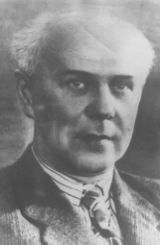
From 1938 to 1961, the department was headed by Corresponding Member of the Academy of Sciences of the U krainian SSR, Professor Serhiy Stepanovych Urazovsky. A distinguished specialist in adsorption, he was among the pioneers studying the relationship between adsorption phenomena and the physicochemical properties of molecules and crystalline solids. One technical application of this research was the development of Soviet gas masks.
Together with Professor I.T. Polotsky, Urazovsky also studied the effects of ultrasound on colloidal systems. He proposed and, together with his students — Z.M. Kanevskaya, P.A. Cherniavsky, O.V. Voronov, L.A. Sysoyev, and others — developed the idea of sybotactic groups in solutions and melts, described in two monographs. These works were ahead of their time when Ya.I. Frenkel’s theory of liquids had not yet been widely accepted. Urazovsky was one of those who developed the scientific ideology of local order preservation in liquids.
Serhiy Stepanovych delivered his lectures with unmatched artistry, captivating his audience, often using poetry and historical anecdotes about science. His lectures attracted not only his students but others as well. He was one of the rare Soviet-era educators who strived to shape future specialists as well-rounded personalities. The scientific school of Professor Urazovsky produced 20 PhDs.
I.I. Strelkov
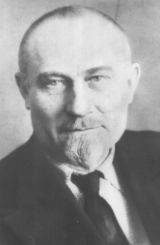 For several years, the Department of Colloid Chemistry, later merged into the Department of Physical Chemistry, was led by Corresponding Member of the Academy of Sciences of the Ukrainian SSR, Professor Illia Ivanovych Strelkov. A scientist-encyclopedist, he dedicated himself to the organization of science and education. For six years, he served as Director of the Kharkiv Chemical-Technological Institute and chaired the Committee for the Chemization of Ukraine. He was also the founder of the modern library of NTU “KhPI.”
For several years, the Department of Colloid Chemistry, later merged into the Department of Physical Chemistry, was led by Corresponding Member of the Academy of Sciences of the Ukrainian SSR, Professor Illia Ivanovych Strelkov. A scientist-encyclopedist, he dedicated himself to the organization of science and education. For six years, he served as Director of the Kharkiv Chemical-Technological Institute and chaired the Committee for the Chemization of Ukraine. He was also the founder of the modern library of NTU “KhPI.”
- A.Yu. Lutskyi
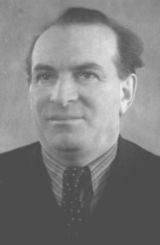 From 1961 to 1980, the department was headed by Doctor of Chemical Sciences, Professor Arkadii Yukhymovych Lutskyi — an outstanding expert in spectroscopy, electro-optical phenomena, and quantum chemistry of intermolecular interactions.
From 1961 to 1980, the department was headed by Doctor of Chemical Sciences, Professor Arkadii Yukhymovych Lutskyi — an outstanding expert in spectroscopy, electro-optical phenomena, and quantum chemistry of intermolecular interactions.
A.Yu. Lutskyi founded a large scientific school: under his supervision, 58 PhD theses were defended, including those by O.M. Obukhova, L.A. Antropova, H.I. Sheina, A.N. Panova, L.I. Dehtiarova, V.V. Prezhdo, B.A. Tromza, O.V. Shepel, Yu.I. Dolzhenko, M.M. Kotelevskyi, B.A. Veretenchenko, and others.
His lecture notes remained a primary learning resource for many years.
From 1980 to 1981, the department was led by his student, war veteran, Associate Professor Borys Andriiovych Tromza.
- V.M. Koshkin
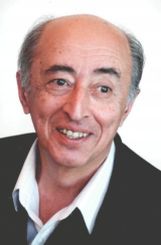 From 1982 to 2011, the department was headed by the Honored Scientist and Engineer of Ukraine, State Prize Laureate of Ukraine, Doctor of Physical and Mathematical Sciences, Professor Volodymyr Moiseiovych Koshkin.
From 1982 to 2011, the department was headed by the Honored Scientist and Engineer of Ukraine, State Prize Laureate of Ukraine, Doctor of Physical and Mathematical Sciences, Professor Volodymyr Moiseiovych Koshkin.
The main research focus of the department became the physics and chemistry of crystals. Among the major achievements were:
- The scientific discovery of the “Property of Chemical Inertness of Impurities in Semiconductors with Stoichiometric Vacancies” (together with Prof. L.S. Palatnik and Ph.D. O.Ye. Ovechkina; Discovery No. 245, 1983).
- The discovery of radiation resistance in crystals with loose structures (Gold Medal of the USSR Exhibition of Economic Achievements, 1985).
- The identification of a new type of equilibrium defects — “flickering vacancy-interstitial pairs.”
- The study of intercalation of foreign molecules into layered crystals and the experimental discovery of new effects in this process (State Prize of Ukraine, 2001).
- The investigation of the influence of the chemical environment on the critical parameters of high-temperature superconductors.
- The creation of a model for impurity solubility in nanocrystals (together with Prof. Yu.I. Dolzhenko and Corresponding Member of NASU V.V. Slyozov).
- The development of heterostructures jointly with Prof. Yu. Gurevich (Mexico) and I. Volovichev (IRE NASU).
Under his supervision, 14 candidates defended their Ph.D. theses.
A number of works by Prof. V.M. Koshkin were carried out in collaboration with the Institute for Single Crystals of the National Academy of Sciences of Ukraine (with L.P. Galchynetsky, V.D. Ryzhikov, V.L. Cherhinets, and others).
The monograph by V.M. Koshkin and Yu.M. Dmitriev was published in Switzerland (“Physics and Chemistry of Compounds with Loose Crystal Structure”, 1994, Harwood Publishers). Prof. V.M. Koshkin has repeatedly been invited to deliver lectures and reports at international conferences and universities in Russia, the USA, Australia, Mexico, Israel, Italy, Japan, Poland, Canada, and Portugal.
The Department organized two All-Union Schools-Seminars on the Physics and Chemistry of Loose Crystalline Structures (1987 and 1989). Prof. V.M. Koshkin also organized symposia in Rome (Italy, 1998), New York (USA, 2000), and Lisbon (Portugal, 2004) as part of the Congresses on Empirical Aesthetics.
In 1989–1991, Prof. V.M. Koshkin was elected a member of the Coordination Council of the Ukrainian Physical Society and a member of the Board of the USSR Physical Society. He has been a foreign member of the Russian Academy of Natural Sciences since 2002, and an Honorary Member of the Russian Academy of Humanities since 2005. Since 1996, he has been a member of the International Association for Empirical Aesthetics.
Throughout 2011, the duties of the department head were performed by Prof. Yurii Ivanovych Dolzhenko, who continues to work actively as a professor and holds the position of Deputy Head of the Department.
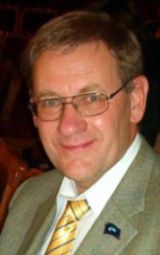 Since 2012, the department has been headed by Doctor of Technical Sciences, Professor Mykola Dmytrovych Sakhnenko, an academician of the Academy of Sciences of Higher Education of Ukraine.
Since 2012, the department has been headed by Doctor of Technical Sciences, Professor Mykola Dmytrovych Sakhnenko, an academician of the Academy of Sciences of Higher Education of Ukraine.
M.D. Sakhnenko, a graduate of NTU “KhPI”, dedicated his earlier scientific activity to work at the related Department of Technical Electrochemistry and is a recognized specialist in this field of physical chemistry. Prof. M.D. Sakhnenko’s main professional interests are focused on the study of transport phenomena, electrochemical kinetics, and the mechanisms of individual stages of extremely complex heterogeneous electrochemical processes, as well as the possibilities of their application to solve practical problems.
Prof. M.D. Sakhnenko’s scientific contributions are presented in more than 500 scientific publications, including about 60 patents and copyright certificates, and almost 180 papers presented at scientific forums ranging from regional to international (Poland, Russia, the United Kingdom, Bulgaria, Australia, Germany, Belarus, Malta, the USA, etc.). Under his supervision, 6 Ph.D. theses have been defended.
The main scientific results of Prof. M.D. Sakhnenko relate to several interconnected research areas he has developed. One stage of his research, which “captivated his mind” for about a decade, was the electrochemical monitoring of anticorrosive paint and polymer coatings. Together with like-minded colleagues (Prof. M.V. Ved’, Assoc. Prof. T.P. Yaroshok, Assoc. Prof. O.P. Pospelov, Assoc. Prof. I.I. Stepanova, Researcher O.V. Bohoyavlenska), he solved the task of electrochemical monitoring of the metal–polymer interface in accordance with the requirements of the USSR Ministry of Shipbuilding Industry. Mathematical models of chronograms for the dielectric permeability of the heterogeneous system (adhesive polymer – electrolyte solution in aggressive environments) were constructed, algorithms for processing electrode impedance spectra and determining areas of adhesion loss were developed. The application of graph theory and random processes to describe the dynamics of system degradation enabled formalization and construction of prognostic dependencies explicitly linking failure criteria with the reliability and service life of coatings under operational conditions. The foundation of this model was the theoretically proposed and experimentally confirmed hypothesis about the structure of the metal–polymer system as a set of discrete fragments differing by the nature of phases, degree of localization of elementary processes and individual stages, and their probability and intensity. Thus, a logical chain was built: components of electrode impedance → specific area of adhesion loss → failure intensity → service life in operation, with explicit analytical relationships provided between the links. The results were implemented in the shipbuilding industry and reflected in the monograph by N.D. Sakhnenko and M.V. Ved’ “Monitoring and Prognostication of Protective Properties of Organic Coatings” (2012).
Recently, the research focus of Prof. M.D. Sakhnenko and his team has shifted toward the electrochemical design of functional materials, mainly anticorrosive and catalytically active ones, to meet the urgent needs of today. Due to the influence of corrosion-electrochemical topics, fostered by long-term collaboration with Prof. E.A. Lunarska from the Institute of Physical Chemistry of the Polish Academy of Sciences, the research vector has shifted toward anodic processes.
This has expanded the methodological toolkit of electrochemical design and promoted the development of functional materials by alternative routes, including:
- Electrochemical formation of coatings with complex and mixed oxides via microplasma oxidation;
- Galvanochemical treatment of passivation-prone metals to develop surface area (alloys of Al, Ti, Zr, etc.) or improve corrosion resistance (Al-Cu system alloys) through surface homogenization;
- Electrochemical synthesis and diagnostics of catalyst materials for gas emission neutralization systems in industry and transport;
- Development of metallic, oxide, composite, and modified electrode materials.
In this research, focused on solving problems of heterogeneous catalysis and electrocatalysis (e.g., creating variable catalytic layers using unified methodology, express methods for evaluating catalytic activity), in collaboration with Prof. M.V. Ved’ and Ph.D. students T.O. Nenastina and T.M. Bairachna, the scientific foundations of electrochemical synthesis of functional coatings by d4–9 metal alloys and mixed oxides were established. The high efficiency of electrochemical technologies at all stages of catalytic material development — that is, their electrochemical design — was demonstrated. The results were published in the 2010 monograph by M.V. Ved’ and M.D. Sakhnenko “Catalytic and Protective Coatings with Alloys and Complex Oxides: Electrochemical Synthesis and Property Prognostication”.
Close cooperation between the department’s faculty and researchers with colleagues from higher education institutions and academic institutes in Kharkiv, neighboring countries, and beyond is a hallmark of the department’s scientific activity. In particular, in collaboration with scientists from the B.I. Verkin Institute for Low Temperature Physics and Engineering and V.N. Karazin Kharkiv National University, Prof. M.D. Sakhnenko participated in the implementation of STCU projects, whose results laid the foundation for the strategy of electrochemical synthesis of highly conductive synthetic metals based on a broad class of ion-radical salts. In collaboration with researchers from the G.V. Karpenko Physico-Mechanical Institute of the National Academy of Sciences of Ukraine (Lviv) and colleagues from Russia, Hungary, and the United Kingdom, studies were conducted on the corrosion protection of aerospace materials…
The contributions of M.D. Sakhnienko include the development of a methodological framework for high technologies, both in electrochemical and chemical-technological systems in general, which laid the foundation for a modern academic discipline. Another important aspect of the creation of advanced materials and functional coatings was the extensive introduction of achievements in information technologies, particularly artificial intelligence tools such as artificial neural networks, into the practice of physico-chemical research.
Professor M.D. Sakhnienko’s active involvement in establishing creative collaborations with colleagues has been supported by his participation in the Scientific Council on the “Electrochemistry” issue at the National Academy of Sciences of Ukraine, the Interdepartmental Scientific and Technical Council on Problems of Corrosion and Metal Protection at the Presidium of the NAS of Ukraine, the Expert Council on Technologies in Light, Food, and Chemical Industries of the Ministry of Education and Science, Youth and Sports of Ukraine, as well as the Methodological Commission on Chemical Technology and Chemical Engineering of the Ministry.
Currently, the department provides instruction in academic disciplines for students from four university faculties. While maintaining a general systemic approach—namely, teaching the theoretical foundations of the behavior of chemical systems and the course of chemical processes—each course is adapted to the future professional needs of students. Following this principle, the department offers the following courses: General Chemistry for students majoring in “Micro- and Nanoelectronics” (Assoc. Prof. A.V. Dzhenyuk); Physical Chemistry, Surface Phenomena and Dispersed Systems for future specialists in “Chemical Technology” (Prof. M.D. Sakhnienko, Prof. Yu.I. Dolzhenko, Prof. O.P. Nekrasov, Assoc. Prof. S.I. Rudneva, Assoc. Prof. B.A. Veretenchenko, Assoc. Prof. L.A. Antropova, Assoc. Prof. A.V. Dzhenyuk); Physical and Colloidal Chemistry for students preparing for the food industry (Prof. O.P. Nekrasov, Assoc. Prof. A.V. Dzhenyuk); Physical Chemistry of Dispersed Systems for future environmental specialists (Prof. Yu.I. Dolzhenko); and courses in Biophysical and Biocolloidal Chemistry for students specializing in “Biotechnology” (Prof. O.M. Blyznyuk).
The methodological approaches applied in the organization of the educational process were initially developed by the students of S.S. Urazovsky and A.Yu. Lutsky. Preserving and developing these principles, various faculty members contributed to the department’s methodological advancements over the years, including Prof. Yu.I. Dolzhenko, Prof. O.P. Nekrasov, Assoc. Professors M.M. Kotelevsky, L.A. Antropova, R.A. Tarnopolska, A.V. Shepel, S.I. Rudneva, V.D. Yevtushenko, B.A. Veretenchenko, A.F. Korunova, O.M. Blyznyuk, and A.V. Dzhenyuk.
Over the past 15 years, the department has continuously improved the organization of the educational process, adapting it to modern standards. Under the leadership of Prof. O.P. Nekrasov and with the participation of Assoc. Professors B.A. Veretenchenko and L.A. Antropova, significant updates were made to the structure and methodology of teaching Colloid Chemistry. Two new textbooks (authored by Prof. O.P. Nekrasov) were published, and a laboratory manual was revised (by Prof. O.P. Nekrasov and Assoc. Prof. B.A. Veretenchenko).
Under Prof. Yu.I. Dolzhenko’s leadership, substantial changes were introduced in the organization and methodology of teaching Physical Chemistry. Six new and fifteen modernized laboratory works were implemented. Four educational-methodological manuals were published under his editorial guidance, co-authored with Assoc. Professors B.A. Veretenchenko and A.V. Dzhenyuk, with technical assistance from A.F. Korotkova. Methodological support for part-time students was also updated (Assoc. Prof. S.I. Rudneva).
During these years, the department introduced a system of individualization of the educational process (initiated and ideologically led by Prof. Yu.I. Dolzhenko). This system aims to enhance the role of independent student work both in and outside the classroom. It includes the completion of individual assignments, often involving the use of applied computational programs developed at the department (by Prof. Yu.I. Dolzhenko, Assoc. Prof. A.V. Dzhenyuk, and Senior Lecturer A.F. Korotkova) at all stages of mastering academic material. This approach applies to practical classes, laboratory work, control tasks, and independent calculation assignments. To support this, a range of methodological materials was developed and implemented (by Prof. Yu.I. Dolzhenko, Assoc. Professors A.V. Dzhenyuk, B.A. Veretenchenko, S.I. Rudneva, Prof. O.M. Blyznyuk, and Senior Lecturer A.F. Korotkova). New courses in Biophysical and Biocolloidal Chemistry were also introduced into the curriculum (Prof. O.M. Blyznyuk).
Since the 2008 academic year, the department has officially implemented a distance learning system (using internet technologies) for part-time students and experimentally for full-time students (headed by Prof. Yu.I. Dolzhenko, with the participation of Prof. O.P. Nekrasov, Assoc. Prof. A.V. Dzhenyuk, and Assoc. Prof. B.A. Veretenchenko). More recently, a system of computer-based and remote student testing has been developed and introduced (led by Prof. Yu.I. Dolzhenko with the participation of Assoc. Professors A.V. Dzhenyuk, B.A. Veretenchenko, and Senior Lecturer A.F. Korotkova).
All faculty members have undertaken significant methodological work to adapt the educational process to the Bologna system.
Since 1993, the department has introduced elective courses such as “Quantitative Methods in the Humanities,” “Modern Ideas in Physico-Chemical Materials Science” (Prof. V.M. Koshkin), and since 2013, “Physical Chemistry of Nanostructures,” “Physico-Chemical Foundations of High Technologies in the Chemical Industry,” and “Chemical Resistance of Materials in Aggressive Environments: Monitoring, Forecasting, and Protection Measures” (Prof. M.D. Sakhnienko).
Recognizing the crucial role of physical chemistry as a fundamental science in shaping essential natural science knowledge, the department continues to develop new methodological approaches for teaching both physical chemistry itself and for defining its place within the educational frameworks for technical specialists. In 2002, V.M. Koshkin and Yu.I. Dolzhenko published the original guide “Physical Chemistry: What, Where, and Why (Program-Guide),” and in 2006, V.M. Koshkin, I.V. Synelnyk, and O.H. Shkorbatov published the book “Introduction to Natural Sciences.” This book represents a detailed program for a new approach to fundamental education, aiming to teach all natural sciences (including physics, chemistry, biology, and certain aspects of psychology, sociology, and philosophy) within a unified system. Along with commentary on the text, the book offers an extensive bibliography with annotations and internet resources. It is primarily intended for master’s students, postgraduate students, researchers, and individuals engaged in self-education.
The department’s success has been supported not only by its lecturers but also by its engineers, who ensure the organization of the educational process. For many years, S.A. Pakhomova, H.A. Dudarchyk, and T.L. Slonska led a team of qualified engineers (including V.M. Yavorovska, I.A. Terentieva, O.I. Nilova, Yu.M. Martynenko, T.V. Vaskovska, L.M. Holovko, O.O. Ovcharenko, among others).
Alongside fundamental scientific issues, the Department of Physical Chemistry has traditionally engaged in applied research as well.
Prof. O.M. Shchukarev was the first to determine the heat of combustion of a range of fuel materials and the heat of cement solidification. He also developed original methods for producing ammonia and sulfuric acid. Prof. S.S. Urazovsky developed the theoretical foundations of gas protection. His monograph on the subject remained unique in global science for a long time. He also conducted a number of studies in the physical chemistry of industrial coal processing. Chemical issues related to the coal industry were also addressed in several works by Prof. I.I. Strelkov. Prof. V.M. Koshkin, in collaboration with his students and colleagues from other institutes and countries, developed a series of measuring instruments with exceptionally high radiation resistance.
In 2012, the Research Laboratory resumed its work under the leadership of Prof. M.D. Sakhnenko. Its researchers (Ph.D. Yu.L. Alexandrov, Ph.D. O.V. Bohoyavlenska, junior researchers S.I. Zyubanova and O.S. Shepelenko) are conducting fundamental and applied research projects coordinated by the Ministry of Education and Science, Youth and Sports of Ukraine. In recent years alone, the laboratory’s developments have been awarded gold medals at the International Salons of Inventions and New Technologies (Kharkiv, 2007; Sevastopol, 2010), a diploma and award from the State Enterprise “Ukrainian Institute of Industrial Property” (Ukrpatent, 2010), and in 2012, the project “Highly Efficient Micro-Arc Oxidation Technology for the Automotive Industry” was recognized as a finalist of the International Contest of Innovative and Investment Projects “Kharkiv Initiatives” in the category “Best Innovation Project in High-Tech Mechanical Engineering.”
Throughout its history, the department has combined research in physical chemistry with the study of the humanitarian and philosophical aspects of science. The name of the department’s founder, Prof. O.M. Shchukarev, is recorded in the history of Russian philosophy. Oleksandr Mykolayovych introduced the principle of structuralism into philosophy. A.Yu. Lutskiy published a series of articles on the philosophical aspects of the thermodynamics of the Universe. Between 1991 and 2006, V.M. Koshkin published a number of works involving the application of mathematical methods to the study of humanitarian problems, which enabled him to analyze the psychology of creative activity, demonstrate the oscillatory nature of public psychology, and build a mathematical model capable of forecasting the periodic shifts in societal psychology and the corresponding kinetics of economic transformations. V.M. Koshkin also proposed an original model for the origin of religions. Together with Yu.R. Zabrodsky, he developed a theoretical model for the kinetics of adaptation and learning, as well as a model of the ethological mechanism of natural selection in biology. Assoc. Prof. A.V. Dzhenyuk continues the research initiated with the involvement of V.M. Koshkin on optimizing education methods based on quantitative approaches.
Currently, based on his prior work, M.D. Sakhnenko has developed and, for the first time in Ukraine, introduced into the educational process of NTU “KhPI” (for postgraduate students and doctoral candidates) an exclusive training course on the scientific and methodological foundations of preparing dissertation theses.